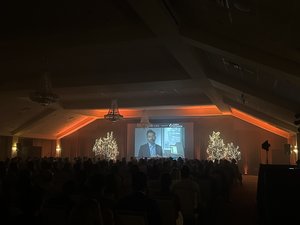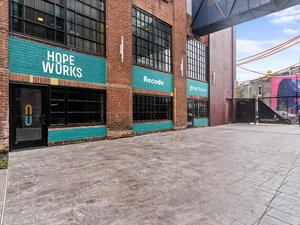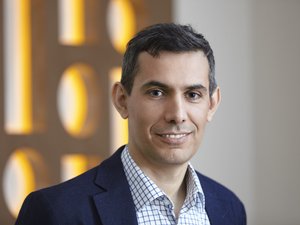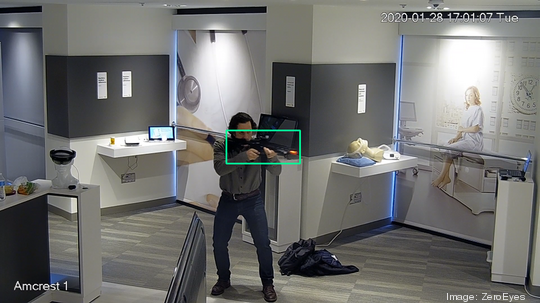
ZeroEyes is eyeing a major fundraising round as heightened demand for its gun detection technology accelerates growth.
The company, founded by a team of former Navy SEALs and military veterans, has doubled the size of its operations in Conshohocken to some 13,000 square feet, doubled its headcount to 170 employees and saw revenue quintuple in 2023. ZeroEyes CEO Mike Lahiff said the company is targeting roughly $50 million in a Series B fundraising round. It previously raised $23 million last year and $20.9 million in 2021.
Founded in 2018, the company now generates revenue in the "tens of millions" of dollars, according to Lahiff, who declined to disclose specific figures. He said the company is running into the "law of large numbers" so revenue increases won't be as large this year, but said ZeroEyes still is tracking to at least double its sales.
It also plans to continue hiring. The company's workforce could swell to as many as 220 employees by the end of the year, Lahiff said. Those hires would largely come in software engineering positions, along with operations and customer support.
The ZeroEyes technology, which uses artificial intelligence to detect active shooters, turns existing security cameras into a "force multiplier," Lahiff said, adding that it has resulted in approximately 10 arrests in the past year.
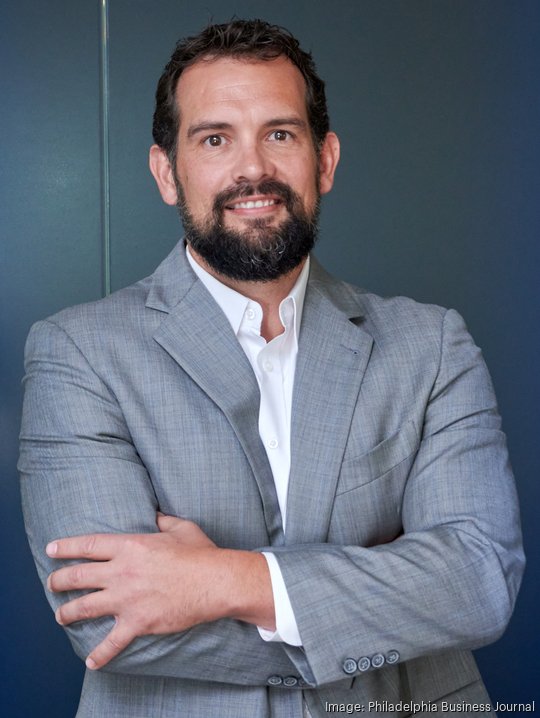
Demand for the software continues to grow. In Pennsylvania, the company saw a 758% increase in enterprise customers and a 300% jump in commercial customers from 2022 to 2023. The number of security cameras using ZeroEyes statewide grew 658% last year.
The new clients included a major public university in the Philadelphia area and a Fortune 50 enterprise customer, though Lahiff declined to identify either by name.
Notably, the company's client list does not include SEPTA, which canceled a ZeroEyes pilot in December, as first reported by The Trace earlier this spring. Lahiff doesn't see the end of the pilot as the end of the company's relationship with its hometown transit agency. When the contract ended, it was largely chalked up to ZeroEyes' incompatibility with SEPTA's existing cameras.
"We're both under the understanding that they want to go get some other cameras put in place, and I think they're trying to figure that out," Lahiff said. "And then they'll probably bring us back to the table there. I really hope they do, because it's in our backyard."
Lahiff added that while SEPTA was using the ZeroEyes technology there were some "detections that led to real arrests." He added that the company is in talks with public transit agencies in other cities to install its technology on their security cameras, though he did not share the specific cities.
Long-term, the goal is to have ZeroEyes gun detection software on "every camera in the United States," Lahiff said. It's a tall task, but one the CEO thinks could happen in the next five to eight years.
"As long as there's still active shooters and gun violence, and our children are dying from gun violence, we're not going to stop," he said. "And we're going to keep pushing until we're on every camera, because it can help."
